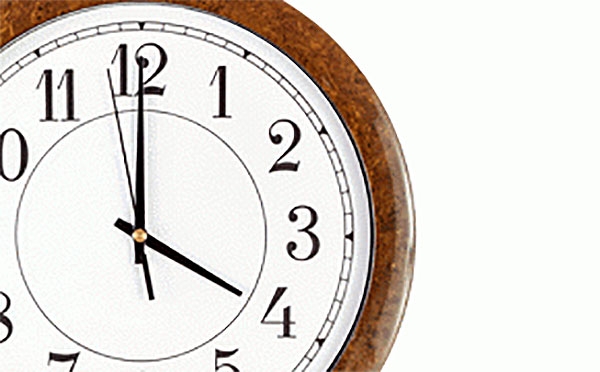
Here are the key things you need to know before you leave work today.
MORTGAGE RATE CHANGES
SBS Bank has raised its floating rate by +11 bps to 5.65% putting it mid-pack. It has also raised four fixed mortgage rates, mainly focused on 3 to 5 year terms.
DEPOSIT RATE CHANGES
Kiwibank has tweaked a range of term deposit rates, the most interesting one being the 3.70% for five months rate. And in a minor change, Treasury's Debt Management Office has changed its 4 year "Earthquake Bond" offer of 2.25%, folding it in to its standard Kiwi Bond offer.
TICKET CLIPPERS
The very same DMO has today announced the appointment of joint lead managers to form the syndication panel for launch of their 20 September 2040 NZ$1 bln to NZ$1.5 bln inflation-indexed bond Those who will share in the spoils are ANZ Bank New Zealand, Deutsche Bank's Sydney Branch, UBS's Australia Branch, and Westpac.
PEAK SEASON
There has been no let-up in the number of permanent and long term arrivals. To January there is a net gain of 71,305. By visa type, the biggest single group arriving in this country were on work visas (42,400) followed by 37,900 New Zealand or Australian citizens (who do not require visas), 24,300 on student visas and 16,700 on residence visas. ('Arrivals' are different to 'net' of course.) January and February are usually the peak months in the year for people migrating here. After that it normally falls away sharply until September.
TAKING FLIGHT
Annual visitor arrivals for January 2017 year numbered 3.54 mln, setting a new record. This was an +11% increase from the January 2016 year. Visitor arrivals in January alone was itself a new January record. The strong increase coincided with the Chinese New Year, Over 54,000 visitors from China arrived in January. Holidaying locals also set a new annual record of 2.64 mln overseas trips in the year to January, up +9%. In fact, the pace is picking up. In January alone Kiwis' overseas trips are up +14%.
A REASON?
Not related to our migration numbers - or is it? - a new bout of very bad air pollution is due to hit Beijing and other parts of north China today. The Chinese Ministry of Environmental Protection has issued an air quality forecast that more than 18 cities in northern China will suffer heavy pollution until at least Wednesday. The latest pollution is caused by “unfavourable meteorological conditions for the dispersion of air pollution”, the ministry said.
STAGNATION NATION?
Australia risks descent into economic stagnation as the mining investment boom fades, says the influential Grattan Institute. Company tax cuts are coming. But they say, any cut in that should be part of a wider package of reforms that explicitly funds the cost to the budget. They want to see an increase in the GST rate from 10% to 15%, 'adjustments' to the tax treatment of capital gains, borrowing and superannuation. They also want to see improvements to workforce participation by ensuring tax, transfer, and childcare support do not impose high effective marginal tax rates on the second earners in households. And they want to see improved efficiency of urban land use by permitting more density in the middle and inner suburbs of Australia’s major cities.
GETTING DRY AGAIN
Inflows into our hydro lakes are drying up fast. On Wednesday, February 22m inflows were 78% of normal. But by Sunday, they had fallen to just 56% of normal, dropping lake storage by 2% in those 5 days (to 85%). But no impact yet on wholesale electricity prices yet which are generally tracking lower as demand subsides.
WHOLESALE RATES FLATTEN
Local rates are flatter with the two year unchanged, the five year down -2 bps, and the ten year down -3 bps. And today's 90 day bank bill rate up +1 bp and now back at 2.00%.
NZ DOLLAR DOWN MARGINALLY
The NZD is slightly softer today and now at 71.9 USc. On the cross rates we are slightly lower at 93.6 AUc, and at 68.1 euro cents. The TWI-5 index is now at 77.4. Check our real-time charts here.
You can now see an animation of this chart. Click on it, or click here.
Daily exchange rates
Select chart tabs
1 Comments
The very same DMO has today announced the appointment of joint lead managers to form the syndication panel for launch of their 20 September 2040 NZ$1 bln to NZ$1.5 bln inflation-indexed bond Those who will share in the spoils are ANZ Bank New Zealand, Deutsche Bank's Sydney Branch, UBS's Australia Branch, and Westpac.
The government must have faith in Treasury's low growth/low inflation term horizon forecast to proceed with another longer dated linker. I guess the collective, private high debt to disposal income levels have to be countered with overt government determination to defer a potential liquidity crisis?


We welcome your comments below. If you are not already registered, please register to comment
Remember we welcome robust, respectful and insightful debate. We don't welcome abusive or defamatory comments and will de-register those repeatedly making such comments. Our current comment policy is here.